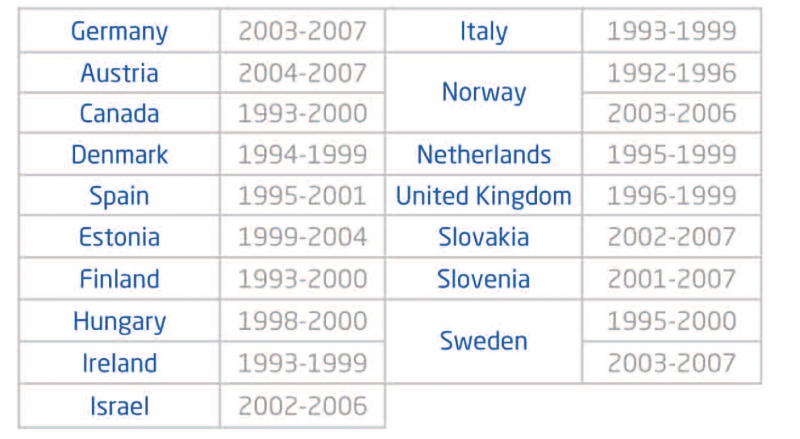
An effort like the one being undertaken in France is nothing new among developed countries. From 1990 to 2007, 17 OECD countries reduced their public expenditure by at least 3 percentage points of GDP over three years. On average, the adjustment in these countries took five years and totalled 7 percentage points of GDP. We shall analyse how these reductions affected different types of spending.
Our study also shows that in order to achieve ambitious objectives in spending reduction, strategic choices among expenditures are preferable to uniform reductions of all expenses. A strategic review of spending implies the use of methods that allow identification of areas of expenditure reduction; the experiences of other countries provide examples. The framework of the review must also aim to prevent the transfer of expenses from one field to another. It is essential that the government be actively involved and that the public be kept informed.
Episodes of reduction of public spending (1990-2007)

Summary:
- An analysis of 1990-2007 (OECD countries) and 2009-2012 (EU countries)
- Some lessons from international experience in methods and principles of action
- Authors: Nicolas Lorach, Céline Mareuge and Catherine Merckling, Economy and Finance Department





